Alumni News 02-2021
Our Headlines
Ulm University’s 54th anniversary
Online ceremony highlights include doctoral awards and DFG president’s address
The University’s anniversary celebration took place online this year due to the coronavirus pandemic. At 3:00 pm on 16 July, the anniversary film had its premiere showing on the university website. Marketing and media staff had pre-recorded segments for the event, including University President Professor Michael Weber’s welcome address and the doctoral awards ceremony..
more...
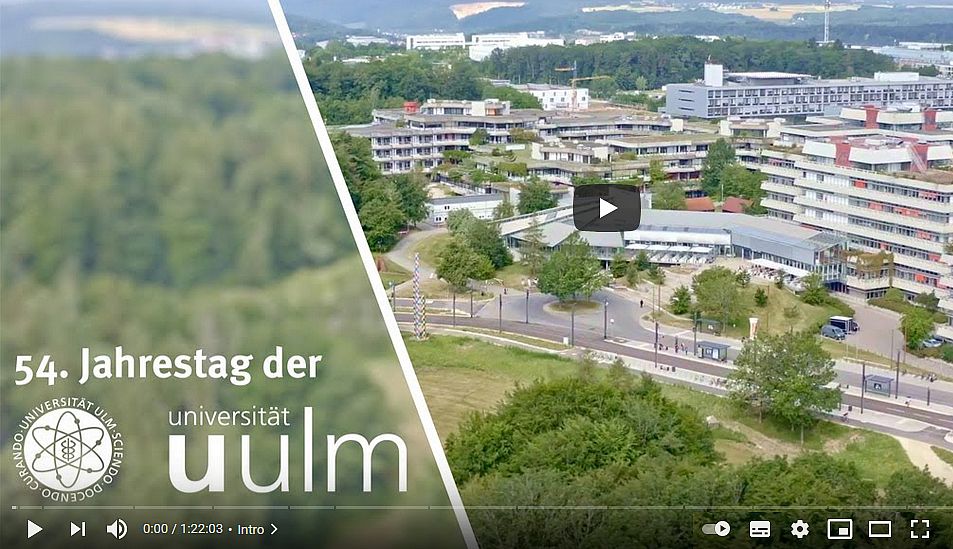
CHE Ranking: top scores for Ulm University mathematics programme
Excellent marks for computer science and physics programmes as well
In the current 2021 CHE University Ranking, students award Ulm University’s mathematics programme top marks. The Centre for Higher Education (Centrum für Hochschulentwicklung, CHE) ranking list, which is published annually in cooperation with the weekly magazine DIE ZEIT, is one of the most important university ranking lists in Germany. Around 120,000 students from more than 300 universities were surveyed for this year’s list. According to the survey, Ulm University students are also particularly satisfied with the programmes in physics and computer science.
more...
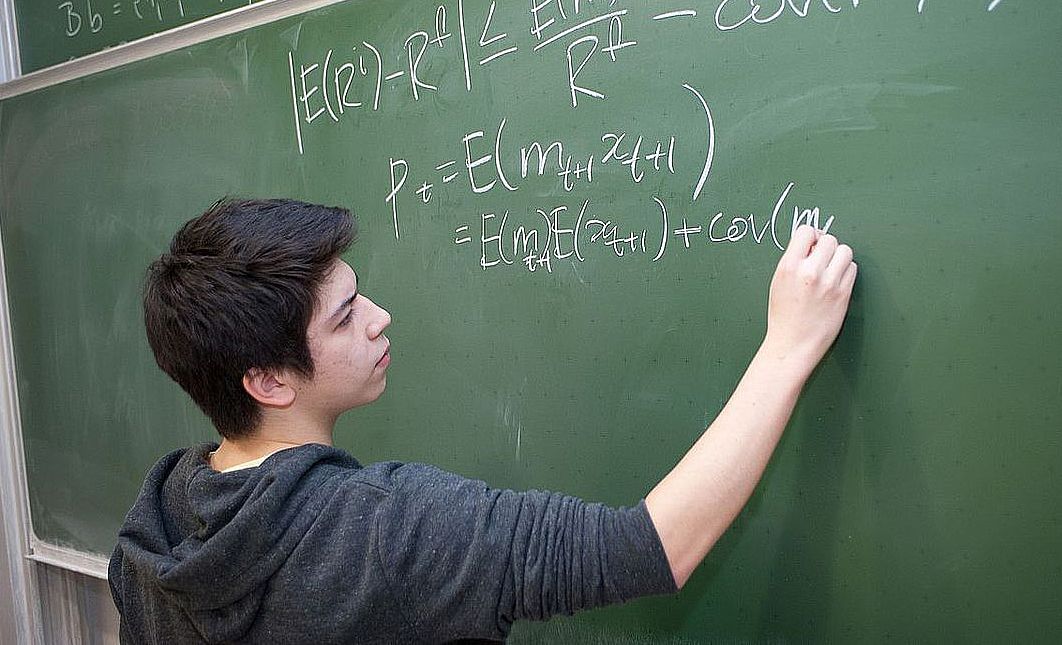
A family-friendly environment for studying and working
Ulm University qualifies as a “family-friendly university” once again
Ulm University is once again entitled to bear the “audit family-friendly university” seal for the next three years. In awarding this distinction, berufundfamilie gGmbh (workandfamily organisation) attests to the University’s efforts to maintain a family-friendly and life-phase-friendly HR policy in terms of research, working and studying conditions. This distinction was presented at a virtual awards ceremony on 22 June, which was broadcast from Berlin.
more...
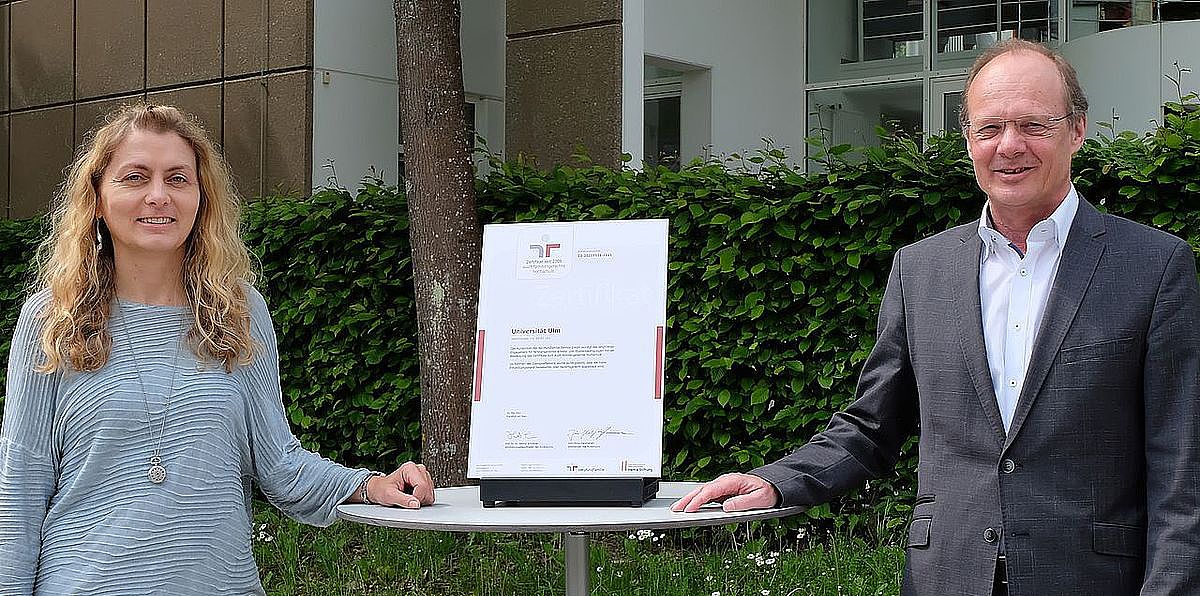
Alumni News
»We are making sure that all vaccines deliver what they promise«
Alumna from Ulm University fighting against the coronavirus in the United States
Drosten, Streeck and Kekulé – three prominent virologists whose names are known all over Germany. The coronavirus pandemic has led to a situation where scientists are suddenly achieving levels of fame normally reserved for rock stars. Our interview partner, microbiologist Dr Marion Gruber, has also been the subject of unexpected attention in the global race for the first coronavirus vaccine authorisations. Gruber is responsible for vaccine authorisation within the American Food & Drug Administration (FDA), making her one of the most important and powerful people in the battle against the coronavirus. As a biology student at Ulm University in the late 1970s, she did not expect that her career would lead her here.
more...
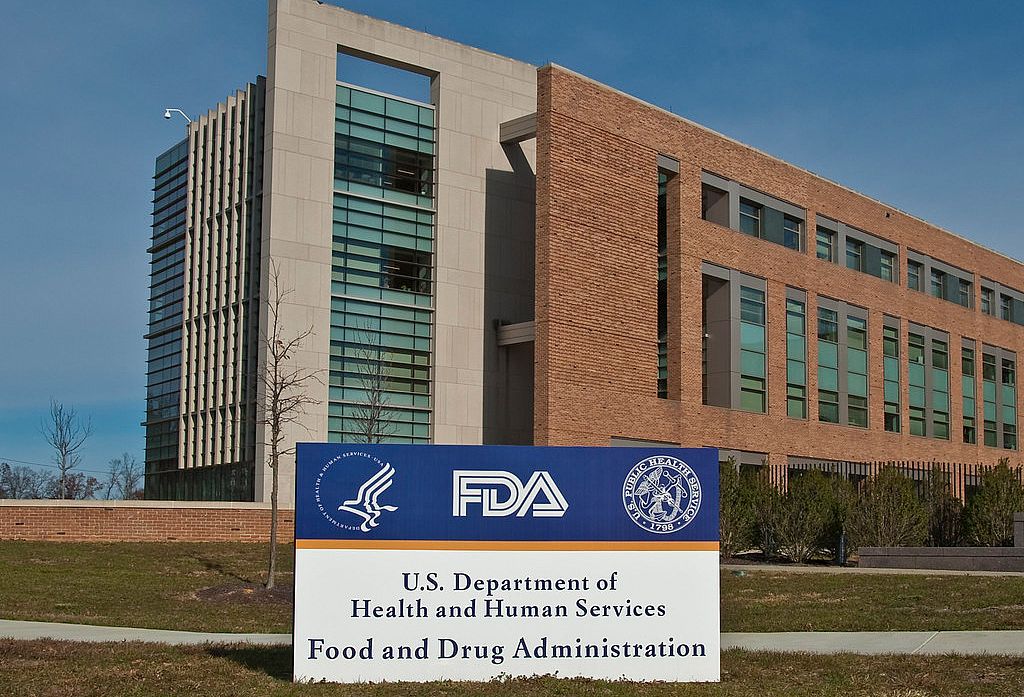
Focus Research
Electronic fingerprint to make microchips safer
1 million euros in funding from the federal initiative “Reliable Electronics”
Any digital system is only as good as the hardware built into it. Here the reliability of the electronic components, such as chips, printed circuit boards or programmable circuits, plays a key role. With its flagship initiative “Reliable Electronics”, the Federal Ministry of Education and Research (Bundesministerium für Bildung und Forschung, BMBF) hopes to increase the safety of electronic components and systems. Scientists from the Institute of Microelectronics in Ulm are involved in two projects that are being funded through this initiative. A total of around one million euros in funding has been allocated to help them develop an electronic “fingerprint” for electronic components which will enable unequivocal identification of individual components and integrated systems.
more...

Solar hydrogen for Antarctica
study shows advantages of thermally coupled approach
A team from the Helmholtz-Zentrum Berlin, Ulm University, and Heidelberg University has now investigated how hydrogen can be produced at the South Pole using sunlight, and which method is the most promising. Their conclusion: in extremely cold regions, it can be considerably more efficient to attach the PV modules directly to the electrolyser, i.e. to thermally couple them. This is because the waste heat from the PV modules increases the efficiency of electrolysis in this environment. The results of this study, which has now been published in Energy & Environmental Science, are also relevant for other cold regions on Earth, such as Alaska, Canada, and high mountain regions, for example. In these places, solar hydrogen could replace fossil fuels such as oil and petrol.
more...
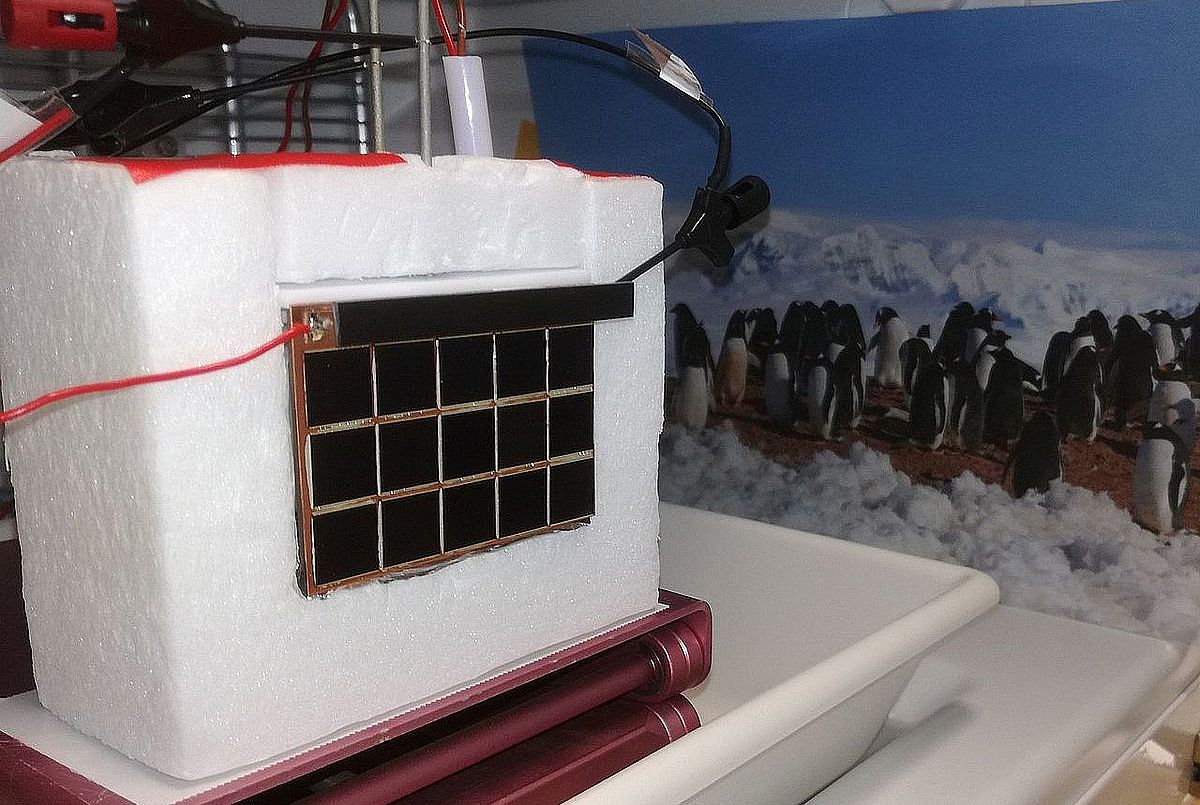
A mathematical perspective increases visibility of global risks
"24th International Congress on Insurance: Mathematics and Economics"
It's the largest international meeting of experts in the fields of actuarial mathematics and actuarial sciences: 508 participants from more than 20 countries, and 344 lectures spread over 5 days and 4 time zones. The congress is being held virtually this week via the four host universities from Germany, Australia, and the USA. These include the University of Illinois at Urbana-Champaign (USA), Pennsylvania State University (USA), the University of New South Wales – Sydney and Ulm University. Ulm University is one of the leading universities in actuarial sciences in Europe, particularly in the field of life and pension insurance.
more...

The body’s own agents against bacteria, viruses and cancer
Human peptidome CRC extended in Ulm
In the Collaborative Research Centre 1279, a team of scientists in Ulm are investigating how the body’s own peptides and proteins can help the human body to ward off bacteria and viruses or fight cancer. The Collaborative Research Centre on “Exploiting the Human Peptidome for Novel Antimicrobial and Anticancer Agents” has now been extended for another four years. In the first funding phase, the CRC received more than 12 million euros in funding from the German Research Foundation (Deutsche Forschungsgemeinschaft, DFG), and now an additional 12 million euros will be added to that. This is a great achievement for the Ulm University Life Sciences Department.
more...
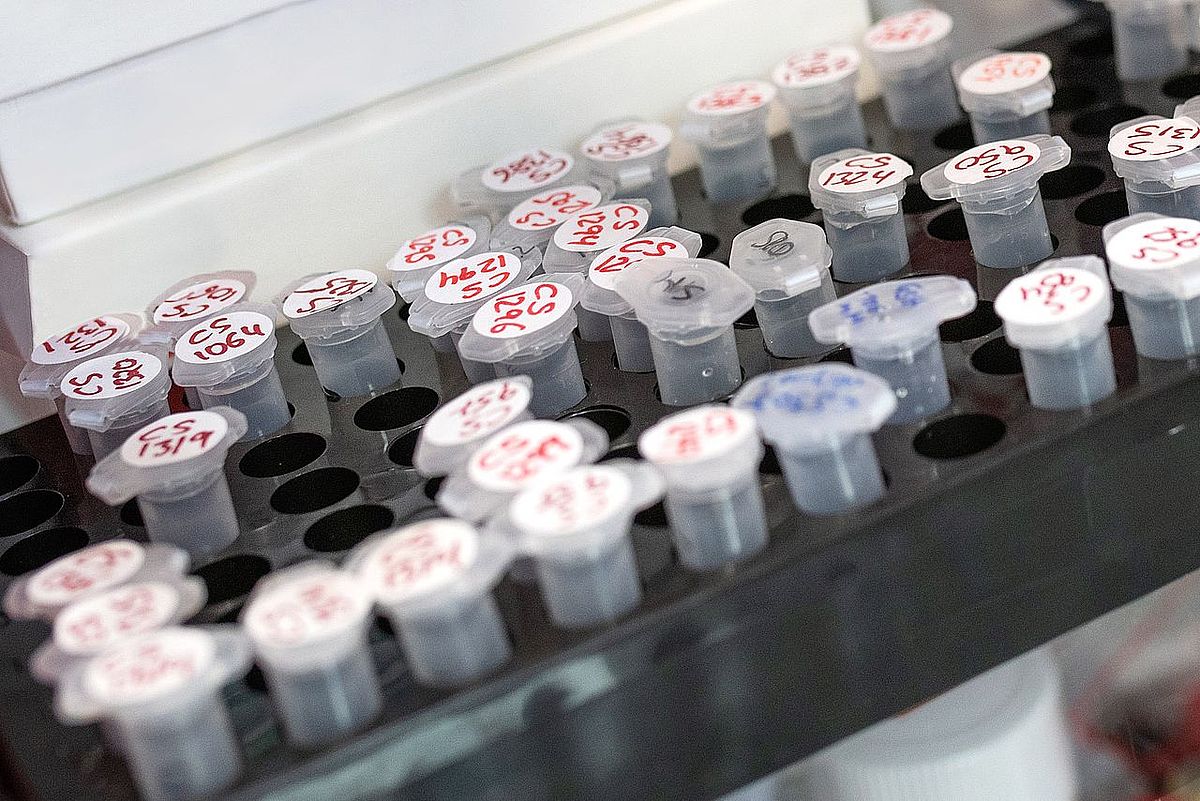
Studies and Teaching
Fit for the challenges of the future
New master’s degree programmes offered at Ulm University in data science and artificial intelligence
The new master’s degree programmes at Ulm University in “Mathematical Data Science” and “Artificial Intelligence” train specialists to stand at the front in the job market of the future. The first students in these programmes will be picking up their studies in the 2021/2022 winter semester. Further information is available now and interested students may apply or register between 1 June and 15 July.
more...

New courses leading to certificates in oncology
Intensive continuing education offers by 'Advanced Oncology'
With its compact courses leading to Certificates of Advanced Studies in 'Interdisciplinary Oncology' and 'Advanced Therapies in Oncology', the Medical Faculty of Ulm University is now offering physicians and natural scientists the opportunity to expand their specialist knowledge on cancer research and treatments online. The two courses are taught in English by international experts from health care and cancer research, who impart a broad spectrum of expert knowledge. The registration deadline for the courses starting in October 2021 is Wednesday, 15 September.
more...
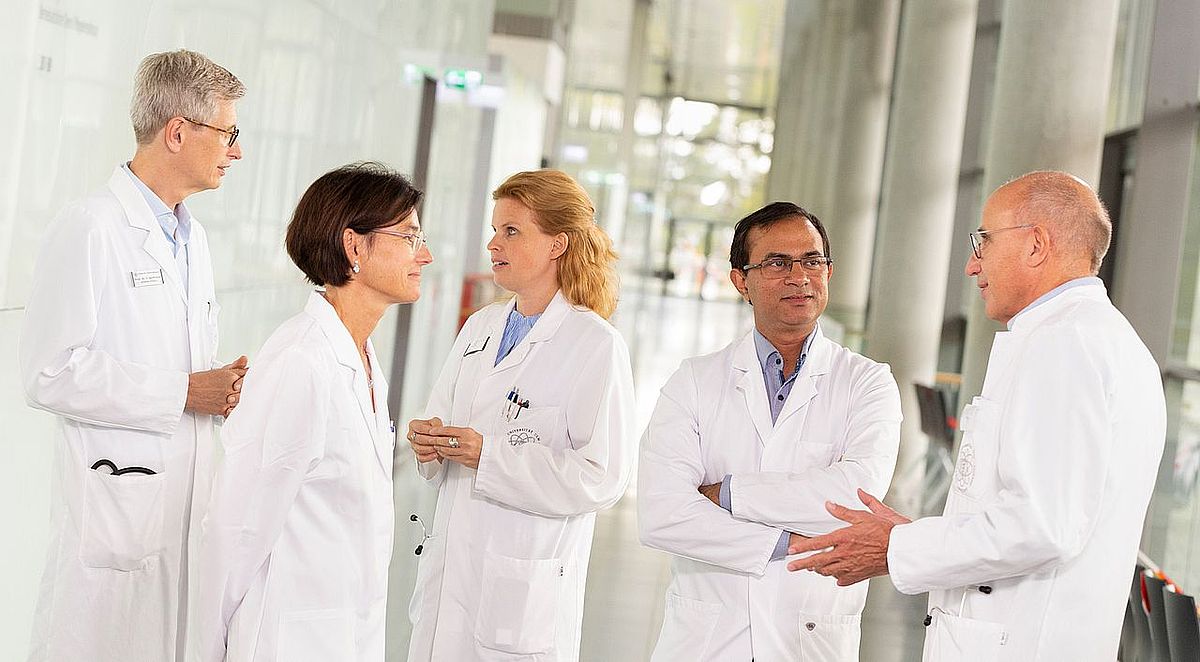
Honours and Awards
The following eight outstanding young researchers were honored with doctoral awards on the 54th anniversary of Ulm University:
- Dr. Christian Baur
- Dr. Franziska Gehringer
- Dr. Sandra Mai-Lippold
- Dr. Christoph Lübbehüsen
- Dr. Matthias Neumann
- Dr. Katja Rogers
- Dr. Manuel Rach
- Dr. Lisa Wrba
Further information about the research areas of the award winners can be found here (in German only):
